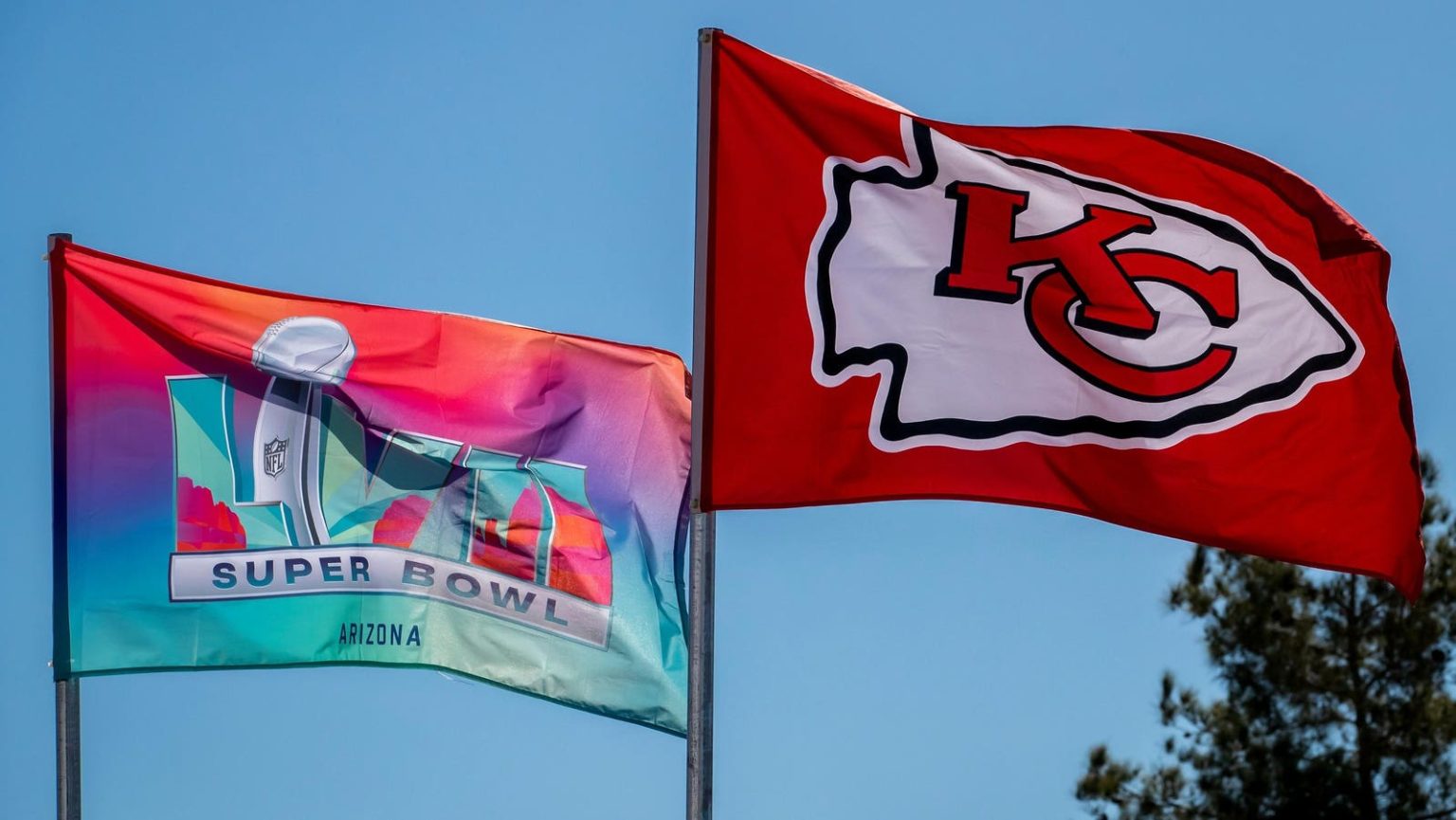Kansas City Chiefs’ Potential "Three-Peat" Sparks Trademark Debate
The Kansas City Chiefs are on the cusp of a historic achievement – a potential third consecutive Super Bowl victory. This pursuit of a "three-peat," however, has ignited discussions surrounding the term’s trademark ownership, highlighting a unique perspective on intellectual property rights within the sports merchandising scene. Unlike the often contentious trademark disputes seen in other regions, Kansas City businesses are demonstrating a refreshing blend of respect for legal boundaries and creative ingenuity.
The term "three-peat," widely used to describe three consecutive championship wins, is a registered trademark owned by Pat Riley, the legendary basketball figure. Riley secured the trademark in 1988 while coaching the Los Angeles Lakers, anticipating their potential third consecutive NBA championship. This ownership doesn’t imply Riley coined the term, but rather that he was the first to officially associate it with specific merchandise, such as hats and T-shirts. This principle underscores a fundamental aspect of trademark law – ownership lies not in inventing a word but in being the first to apply it commercially to a product or service.
As Kansas City businesses gear up for the potential victory, they are navigating the "three-peat" trademark with a surprising level of awareness and adaptability. Local television station KCTV reports that merchandisers, cognizant of Riley’s trademark, are exploring creative alternatives. This proactive approach distinguishes them from the more defiant attitudes often observed in other sports markets. Instead of disregarding intellectual property rights, Kansas City vendors express understanding and a willingness to innovate within the legal framework. This nuanced approach fosters a sense of shared understanding and mutual respect in the commercial landscape.
The origin of the "three-peat" trademark traces back to Riley’s acquisition from an earlier entity, predating even his ownership. The first documented use is attributed to a high school student in Illinois in the late 1980s. Over the years, the term has been widely adopted in various sporting contexts globally, documented by a comprehensive Wikipedia entry listing teams achieving the "three-peat" feat. However, Riley’s company, Riles & Company, Inc., continues to hold active trademark registrations for "Three-Peat" across a diverse range of products from mugs and apparel to even energy drinks, solidifying their claim to the term’s commercial use.
Riley’s trademark ownership has faced legal challenges in the past, most notably in 2001 when a party argued that "three-peat" had become generic. The Trademark Trial and Appeal Board ruled in Riley’s favor, upholding his trademark rights. However, this decision doesn’t permanently settle the matter. The dynamic nature of trademark law means what held true in 2001 may not hold true today. While Riley’s continuous use might have strengthened his claim, widespread public usage could potentially dilute the trademark’s distinctiveness. The question remains whether the term has become so ingrained in sports lexicon that it’s now considered generic, similar to terms like "MVP" or "slam dunk," which are also registered trademarks but widely used in everyday sports conversations.
The "three-peat" trademark presents a fascinating case study in the evolving nature of intellectual property rights in the context of sports. Riley’s assertive trademarking, following a trend set by other coaches like John Calipari who trademarked "Refuse To Lose," underscores the increasing commercialization of sports terminology. The legal crux of the matter lies in whether “three-peat” has truly become generic. If so, its use could be considered fair game, especially when used ornamentally or for informational purposes. However, if the trademark remains valid, using it on branded merchandise requires obtaining proper licensing, regardless of its perceived desirability for maximizing sales.
The ingenuity of Kansas City businesses in circumventing the trademark issue showcases a pragmatic and ethical approach to business. They acknowledge the trademark’s validity and are channeling their efforts into creative marketing strategies. This includes coining new phrases that capture the essence of a “three-peat” without directly infringing on Riley’s rights. This proactive and respectful approach to intellectual property demonstrates a sophisticated understanding of trademark law and a commitment to fair competition. It serves as a valuable lesson for businesses across various industries, highlighting the importance of respecting established trademarks while finding creative avenues for expressing similar concepts. The story unfolding in Kansas City showcases not only the pursuit of athletic excellence but also a refreshing commitment to ethical business practices within the exciting world of sports merchandising.


